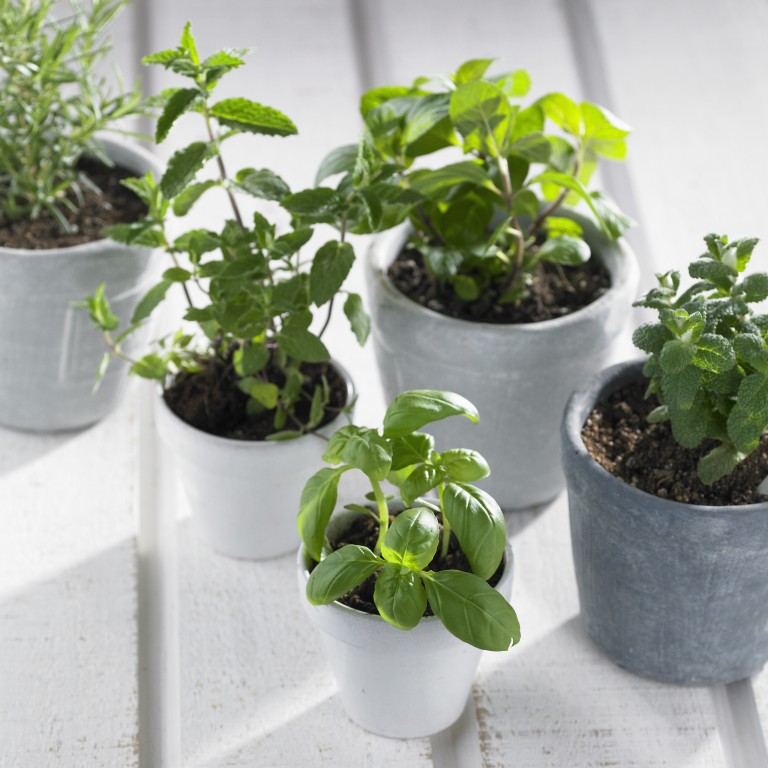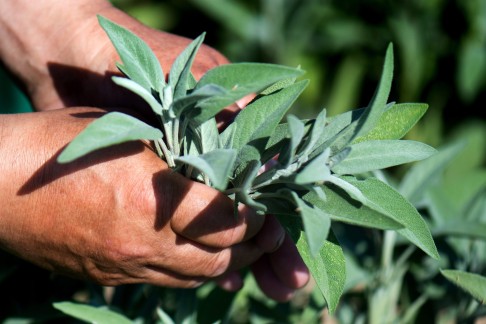
Herbs with health benefits, and how to grow them indoors
Summer is a good time to plant a herb garden, if you haven't already. Leaves of the plants have various health benefits, and cooling properties
Constantly moving from the scorching heat outdoors to chilly, air-conditioned interiors makes catching a cold almost inevitable in summer.
To stave off potential sniffles, more people are turning to fresh herbs in their diet as an easy and inexpensive way to boost their immune systems. These nutritional powerhouses will also cool off your body naturally.
Summer is the best time to start your own indoor herb garden. These herbs flourish in the heat and sun, and will add a tasty twist to your dishes.

Basil: This “holy herb” has a unique fragrance that embodies summer. It is an excellent source of vitamins and minerals – vitamin K in particular, which strengthens bones and plays an essential role in blood clotting.
Basil is widely used in Italian cuisine. It is the basis of traditional pesto and goes best with tomatoes, summer salads and meat. In Southeast Asia, basil is often added to seafood dishes to complement the flavours. It also adds a terrific zest to noodle soup and spring rolls.
Mint: Mint is known for its refreshing aroma, but it is also a nutritional superstar. Apart from having one of the highest antioxidant capacities among its peers, it helps digestion and can ease an upset stomach after overeating.
Mint water can reduce inflammation and swelling; just add some mint leaves with cucumber to jazz up your water. Mint is wonderful with soup, porridge, lamb and vegetable dishes. It also complements and intensifies the natural sweetness in fresh fruits, especially berries and melons.

Sage: This Mediterranean herb is rich in potassium, which helps promote a healthy heart rate and blood pressure. With its anti-inflammatory properties, a cup of sage tea can soothe a sore throat. Its intense flavour makes it a perfect match with poultry, pork and dairy products. A little goes a long way.
Lemon balm: Packed with powerful antioxidants, lemon balm promotes relaxation and eases anxiety and stress. It is also a natural pain remedy for menstrual cramps, headache and toothache. Its antiviral properties can speed up recovery from colds. As a herb in the mint family, lemon balm also improves digestion. Drinking a cup of lemon balm herbal tea every day reduces bloating.
Its can replace lemon peel to flavour soups, sauces and seafood.
Six tips for growing herbs
Soil dries up quickly on hot summer days. So water the herbs regularly, especially basil, to keep the soil moist and well drained.
Grow mint separately, as its heartiness can hinder the growth of other herbs. Keep an individual container on hand to control its spread.

Try companion planting to help your herbs achieve their full potential and minimise chances of fungal diseases. Plant basil with tomatoes, sage with rosemary, but avoid planting mints and parsley together.
Frequent pruning of the top new leaves will promote growth of the plant and produce more tender leaves. Large leaves at the bottom are too old to eat, but they act as solar panels that power the plant’s growth.

Herbs thrive in summer. If you have more fresh herbs than you can use, dry the herbs and store them in an airtight container away from light. For tender leafy herbs like basil and mint, freeze them into ice cubes to better preserve their flavours.
Instead of the chemical stuff, try a natural pesticide of chilli, vinegar and water in a spray bottle, applied generously.
The writers are the founders of Punch Detox, Hong Kong’s first juice cleanse company.
